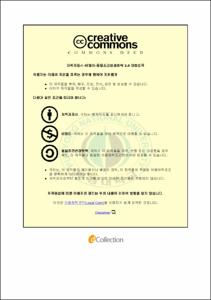朝鮮王朝의 老人인식과 敬老制度에 관한 硏究
- Alternative Title
- A Study on the recognition of an old person in the Joseon Dynasty period
- Abstract
- Confucianism made a great role for our unified country. The Chosun dynasty founded in 1932 by Lee Sunggye's coup d'etat adopted the 'Eogboolsoongyoo' policy (oppressing Buddism and encouraging Confucianism). The Chosun dynasty executed the policy in favor of the old people based on Confucian ethic such as Aechingyungjang(to love the parents and respect the elder), and Gyungrojonhyun(to respect the old and the wise). It also classified the people at the age of 50 years more as Noin(the old), to execute the policy taking care of the old people according to their social position; Kookro, Seoro and Cheonmin(high, middle and low class people), so that it may develop the centralized Yangban(Noble class) bureaucratic system stably by execution of Confucian-ism politics and ruling ideology with Jinhyooljungchaek(policy for helping the poor). and sahaegyohwachaek
(policy for social enlightenment).
First, it applied Hyohaengjungpyoje(obedient-to-the parents system) to the middle class elder and awarded to Hyoja, Ouiboo and Jeolboo(people who obey and take good care of the parents and the old). Second, it gave feasts, named Yangroyunseolhaeng(party for the old), to all of the old(Kookro, Seoro and Cheonmin) with the attendance of king and his crown prince, and promoted all of them by one grade each with Gajaje(promotion system). Third, it offered exemption from the military service, or compulsory labor to the young people who take good care of the aged parents by applying Gorohyeyangchaek(policy of helping the old), for all classes of the old; Kookro, Seoro and Cheonmin. The kingdom allowed the old without son to get one as Seejung(attendant), among the grand children either from his son or from his daughter. Besides, there was system of a various Seejung, by which the old people were looked after.
It operated Giroso(a place the retired high officials gather together and discuss the country issues) only for the high class people, where the retired officials were well treated and they had power to discuss and decide the country issues. Giroso, king also joined in was operated by the government's financial support.
Only 70 years old or more people retired from the Jeong 2poom or higher position in the government are allowed to join in Goroso and the military officers were not accepted, which shows Chosun dynasty's Soongmoongyungmoo ideology(respecting scholars and dismissing the military officers).
In conclusion, Chosun dynasty could achieve the political purpose of reinforcing the king's power by maintaining the social order at the same time by Giro policy through the realization of Hyocheejuoui(teaching the obedience to the old), which followed thoroughly to the Confucian ethic of Gyungrohyochin(respecting the old and obeying the parents).
- Issued Date
- 2010
- Awarded Date
- 2010. 2
- Type
- Dissertation
- Publisher
- 부경대학교 대학원
- Alternative Author(s)
- Lee, Ho Il
- Affiliation
- 부경대학교 대학원
- Department
- 대학원 사학과
- Advisor
- 신명호
- Table Of Contents
- Abstract
Ⅰ. 서론 1
Ⅱ. 조선왕조시대 유교의 노인인식과 나이와 신분 3
1. 유교의 노인인식 3
2. 나이와 신분에 따른 구분 5
Ⅲ. 조선시대 노인제도 9
1. 효행정표제(孝行旌表制) 9
2. 양로연 설행(養老宴 設行) 10
3. 기로혜양책(耆老惠養策) 14
4. 기로소 설치(耆老所 設置) 22
1) 유래와 변천 22
2) 운영실태 30
3) 경로행사 35
5. 치사제(致仕制) 42
Ⅳ. 결론 51
참고문헌 55
- Degree
- Master
- Files in This Item:
-
-
Download
 朝鮮王朝의 老人인식과 敬老制度에 관한 硏究.pdf
기타 데이터 / 1.45 MB / Adobe PDF
朝鮮王朝의 老人인식과 敬老制度에 관한 硏究.pdf
기타 데이터 / 1.45 MB / Adobe PDF
-
Items in Repository are protected by copyright, with all rights reserved, unless otherwise indicated.